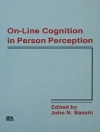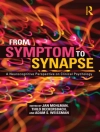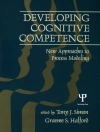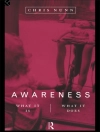Anger and aggression are prevalent problems among people with developmental disabilities and constitute primary reasons for them to be admitted and re-admitted to institutions. They are also a key reason for the prescribing of behaviour control and anti-psychotic medication to this client group. Stimulated by growing research in this area, mental health and criminal justice professionals have begun to see the benefits of anger assessment and cognitive-behavioural anger treatment for people with developmental disabilities.
There is no prior text to guide anger treatment provision to this client group. This text presents a manual-guided cognitive-behavioural anger treatment protocol, grounded in a solid theoretical framework and empirical evidence for its efficacy in clinical practice. The assessment and treatment approach is designed to engage and motivate patients with recurrent and deep-rooted anger problems and their manifestation in serious aggressive behaviour. Accompanying the treatment protocol are a number of worksheets, handouts, and exercise sheets for clinicians and clients that can be accessed online.
Table of Content
About the Authors viii
Foreword ix
Preface xi
Acknowledgements xv
1. Anger and Aggression: Conceptual Background and Historical Perspective 1
2. Anger and its Dysregulation: A Guiding Framework 15
3. Anger Treatment Effectiveness 27
4. Emotional Problems, Aggression and Psychotherapy for People with Developmental Disabilities 34
5. Anger Treatment for People with Developmental Disabilities 43
6. Issues in Anger Assessment and Treatment Evaluation 67
7. Development, Delivery and Maintenance of a Cognitive-Behavioural Anger Treatment Protocol for People with Developmental Disabilities 86
8. Anger Treatment Protocol—Preparatory Phase 103
9. Anger Treatment Protocol—Treatment Phase 120
10. Therapist Training, Supervision and Process Considerations 153
Bruce T. Gillmer
11. Anger Treatment for Women with Developmental Disabilities 167
Alison Robertson
Appendices 181
References 235
Index 253
About the author
John L. Taylor is Professor of Developmental Disability Psychology, Northumbria University, Newcastle upon Tyne; Head of Psychological Therapies and Research and Consultant Clinical Psychologist, Northgate and Prudhoe NHS Trust, Northumberland, UK. Since qualifying as a clinical psychologist from Edinburgh University, John Taylor has worked mainly in developmental disability and forensic services in community, medium secure, special hospital and prison settings in the UK. In 1999 he received a Department of Health Sir Kenneth Calman Bursary Award to develop his research interests in the area of anger treatment. in recent years he has published work related to his clinical research interests in assessment and treatment of offenders with developmental disabilities in a range of research and professional journals. He is currently Chair of the British Psychological Society’s Faculty for Forensic journals. He is currently Chair of the British Psychological Society’s Faculty for Forensic Clinical Psychology and the Learning Disability Steering Group of the NHS National Forensic Mental Health research and Development Programme.
Raymond W. Novaco is Professor of Psychology and Social Behavior, University of California, Irvine, USA. Cognitive-behavioral therapy for anger was pioneered by Ray Novato, for which he received the Best Contribution Award in 1978 from the International Society for research on Aggression. Funded by the Mac Arthur Foundation Research Network on Mental and the Law in 1991-1993, he developed new Procedures for anger assessment for use with mentally disordered persons, which are here being extended to the developmental disability domain. he received the Distinguished Contributions to Psychology Award from the California Psychological Association in 2000. In addition to being programme consultant for the Northgate Hospital anger project, he serves as Research Consultant to The State Hospital Scotland and for many years served on the Advisory Board of Atascadero State Hospital In California.












